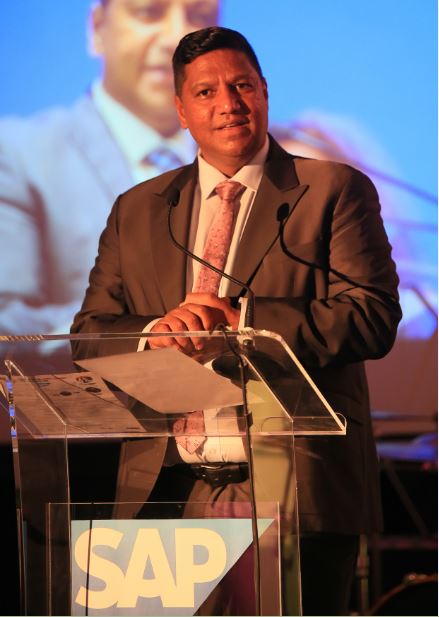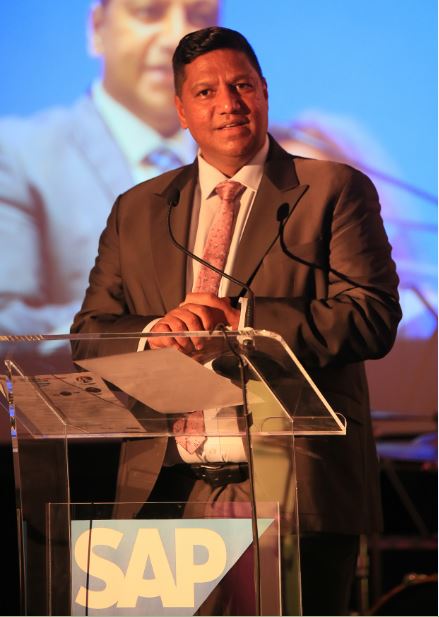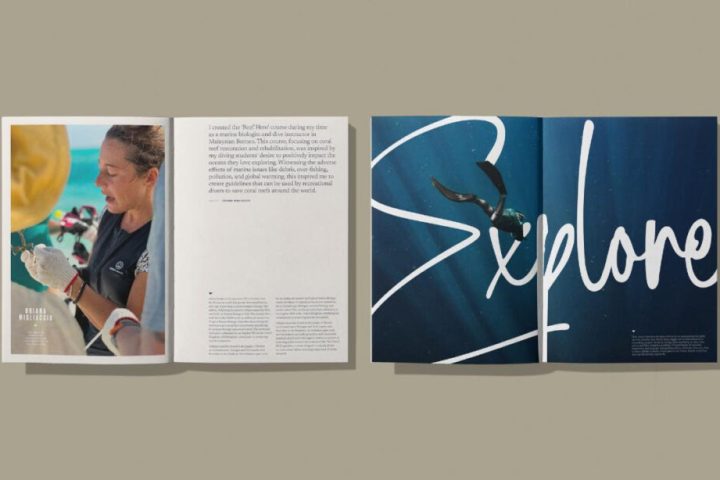By Sunil Geness, Global Sustainability Lead for Africa at SAP

NAIROBI, Kenya, 4 June 2021 -/African Media Agency(AMA)/- As we celebrate World Environment Day, it is important to take stock of both the urgency of establishing a more sustainable global society, and the progress made in achieving this.
Join our WhatsApp ChannelSustainability in the modern context needs to consider an organisation’s economic, environmental and societal responsibilities, or the so-called ‘triple bottom line’. The pandemic has only served to emphasise the importance finding more sustainable alternatives to our current ways of work and life. In fact, scientists have warned that worse pandemics could emerge if we don’t find more sustainable ways of living that protect nature.
Our current industrial age follows a model of ‘take, make, waste’, where more than 91% of raw materials are not reusable and therefore wasted. To create a future that is cleaner, greener and more equal than the world we live in today, we need to – as our global CEO puts it – “chase zero”: zero emissions, zero waste, and zero inequality.
Positively, public awareness of and mass mobilisation behind sustainability has never been greater. A 2018 UN study found surging levels of momentum behind climate action, and highlighted the crucial role of non-state actors – such as private sector companies – in reducing emissions and reaching climate targets.
Enablers and exemplars
Organisations have a leading role to play in creating and advancing sustainability. In fact, purpose-driven organisations with strong cultures of sustainability have the opportunity to act as both enablers or exemplars.
Enablers provide products and services that meet the sustainability challenges faced by their customers. For example, Climate 21 is a software package that allows SAP’s customers to measure and analyse the CO2 emissions directly associated with individual products they offer in the market.
The Ariba Network, the world’s largest business network that facilitates 5.3 million organisations to trade $3.75-trillion in goods and services each year, also provide greater transparency in enterprise supply chains. This enables organisations to make informed decisions over which of their suppliers prioritise sustainability and helps ensure it remains a key priority across the supplier base.
Not every organisation can be an enabler, but every organisation can strive to be an exemplar, an organisation that leads by example in their own business operations and practices. Being an exemplar is increasingly important in talent attraction and retention. In an internal survey of SAP’s global workforce, 94% of employees believed it is essential for SAP to pursue sustainability to create positive impact.
Although progress is sometimes slow, most countries have acknowledged the need to strive for carbon neutrality. The EU, for example, has set an ambitious target for net carbon neutrality by 2050. Here pioneering organisations have another opportunity to act as exemplars by achieving carbon neutrality targets. In fact, there is scope to take bolder steps: SAP, for example, has committed to become carbon neutral in its operations by 2023, two years ahead of its initial goal.
Environmental challenges require new solutions
The issue of plastic pollution has recently gained front-page prominence as the environmental impact of especially single-use plastics becomes clearer. According to the National Geographic, half of all plastic ever manufactured was produced in the last 15 years, and only 10%-15% of single-use plastic is recycled annually. Microplastics have also been found in fresh water supplies around the world, with as-yet unknown consequences for our health.
New initiatives to combat plastic pollution are giving hope. A new project piloted in Ghana between the World Economic Forum, Global Plastic Action Partnership, and SAP has increased visibility within the plastics supply chain and stand to benefit people, companies and the environment.
The project, involving more than 2 000 Ghanaian waste pickers, aims to measure the quantities and types of plastic they collect, with data analysed and matched to market-related prices paid through the value chain locally and abroad.
Organisations committed to sustainability can then pay a premium for socially responsible plastics, while waste pickers gain opportunities to earn fairer wages. The data generated by the project can also guide policy-makers as they determine optimal locations for building recycling facilities.
Tremendous urgency in becoming more sustainable
The UN has called on countries, leaders and organisations around the world to do things differently, think differently, and act differently to bring us closer to a more sustainable future. In a recent call-to-action, the UN put forward three priority areas that will enable the world to recover and build more resilient, sustainable and inclusive societies, namely strong leadership, improved knowledge-sharing, and effective partnerships.
With a ballooning population expected to triple in size by 2100, and with high levels of climate change vulnerability, Africa is particularly vulnerable to the consequences of unsustainable and environmentally unsound practices.
African enterprises that are in a position to be sustainability enablers should invest further in innovation and product development that can assist organisations, governments and citizens in their own sustainability efforts. All organisations have a duty, however, to act as exemplars and embody the spirit of sustainability across all their practices.
As international diplomat Christiana Figueres once said, “the next eight to ten years is going to determine the quality of life for the next 100 to 200 years”. African organisations have a duty to prioritise sustainability to ensure future generations inherit a clean and liveable world where every person has the opportunity to build a bright future for themselves, their families and their communities.
Distributed by African Media Agency (AMA) on behalf of SAP Africa.
Visit the SAP News Center. Follow SAP on Twitter at @SAPNews.
About SAP
SAP’s strategy is to help every business run as an intelligent enterprise. As a market leader in enterprise application software, we help companies of all sizes and in all industries run at their best: 77% of the world’s transaction revenue touches an SAP® system. Our machine learning, Internet of Things (IoT), and advanced analytics technologies help turn customers’ businesses into intelligent enterprises. SAP helps give people and organizations deep business insight and fosters collaboration that helps them stay ahead of their competition. We simplify technology for companies so they can consume our software the way they want – without disruption. Our end-to-end suite of applications and services enables business and public customers across 25 industries globally to operate profitably, adapt continuously, and make a difference. With a global network of customers, partners, employees, and thought leaders, SAP helps the world run better and improve people’s lives. For more information, visit www.sap.com.
# # #
Any statements contained in this document that are not historical facts are forward-looking statements as defined in the U.S. Private Securities Litigation Reform Act of 1995. Words such as “anticipate,” “believe,” “estimate,” “expect,” “forecast,” “intend,” “may,” “plan,” “project,” “predict,” “should” and “will” and similar expressions as they relate to SAP are intended to identify such forward-looking statements. SAP undertakes no obligation to publicly update or revise any forward-looking statements. All forward-looking statements are subject to various risks and uncertainties that could cause actual results to differ materially from expectations. The factors that could affect SAP’s future financial results are discussed more fully in SAP’s filings with the U.S. Securities and Exchange Commission (“SEC”), including SAP’s most recent Annual Report on Form 20-F filed with the SEC. Readers are cautioned not to place undue reliance on these forward-looking statements, which speak only as of their dates.
© 2020 SAP SE. All rights reserved.
SAP and other SAP products and services mentioned herein as well as their respective logos are trademarks or registered trademarks of SAP SE in Germany and other countries. Please see https://www.sap.com/copyright for additional trademark information and notices.
Note to editors:
To preview and download broadcast-standard stock footage and press photos digitally, please visit www.sap.com/photos. On this platform, you can find high resolution material for your media channels. To view video stories on diverse topics, visit www.sap-tv.com. From this site, you can embed videos into your own Web pages, share video via email links, and subscribe to RSS feeds from SAP TV.
For customers interested in learning more about SAP products:
Global Customer Center: +49 180 534-34-24
United States Only: 1 (800) 872-1SAP (1-800-872-1727)
For more information, press only:
Delia Sieff, SAP Africa, +27 (11) 235 6000, delia.sieff@sap.com
Adam Hunter, SAP Africa, +27 (711) 787 035, adam.hunter@sap.com
Source : African Media Agency (AMA)

















Follow Us